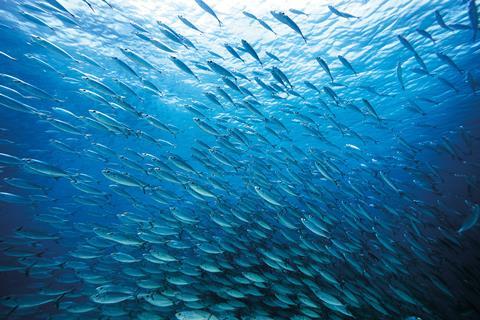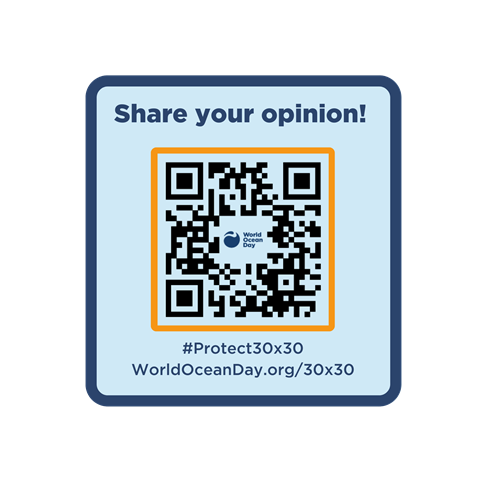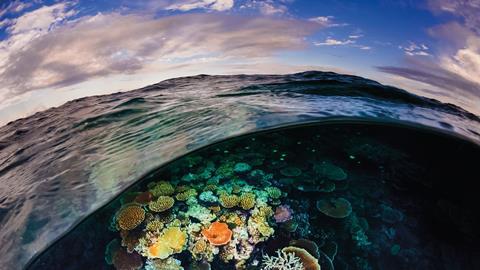June 8 is World Ocean Day, a day that should remind everyone of the major role the oceans have in everyday life because they are the lungs of our planet, a major source of food and medicine, and a critical part of the biosphere. Therefore, Our future is closely linked to the oceans because they connect us all through nourishment as well as culture and sport.
That’s why Patagonia is launching a global environmental campaign focused on protecting and restoring marine biodiversity to coincide with this year’s World Ocean Day. Through a petition, a series of films and events across Europe, the California-based outdoor company aims to mobilize everyone and call on governments to end bottom trawling, starting with an immediate ban in marine protected areas and near-shore zones. Campaign partners in Europe include NGOs Bloom, Blue Ventures, ClientEarth, Environmental Justice Foundation, Oceana and Seas At Risk Scotland.
The oceans are life
The ocean covers over 70 percent of our planet. It is our life source, supporting humanity’s sustenance and that of every other organism on Earth. The ocean produces at least 50 percent of the planet’s oxygen; it is home to most of Earth’s biodiversity and is the main source of protein for more than a billion people around the world. The ocean is key to our economy, with an estimated 40 million people being employed by ocean-based industries by 2030. The oceans are also an effective climate solution.
But the practice of bottom trawling threatens this valuable ecosystem because it is one of the most damaging practices humans inflict on our oceans. It destroys seafloor ecosystems, causes overfishing, and indiscriminately kills all life, from turtles and rays to sharks. As for fishing in general, according to the UN, we are taking more from the ocean than can be replenished – with 90 percent of big fish populations depleted and 50 percent of coral reefs already destroyed today. But beyond that, bottom trawling has a massive impact on the climate.
Dragging nets across the seafloor consumes more fuel and causes four times more emissions than other types of fishing. Greenpeace says on its website that “fishing boats that drag heavy nets through the ocean to trawl the sea floor, often at great depths, release as much carbon dioxide as the entire aviation industry, according to a groundbreaking 2021 study.” Bottom trawling disrupts carbon-binding sediment and destroys marine plants and animals that absorb carbon from the atmosphere. The oceans absorb a quarter of the carbon dioxide we produce, but the practice of bottom trawling threatens to destroy these precious ecosystems. Patagonia therefore demands: We must protect the oceans so they can protect us!

Regenerative alternatives instead of bottom trawling
Instead of this destructive industrial practice, Patagonia’s campaign and accompanying films promote regenerative alternatives such as 3D ocean farms and the restoration of seagrass beds. About half of European fisheries workers are small-scale fishermen, many of whom are affected by bottom trawling. The campaign gives them a platform and demands that they be supported in making the necessary transition.
The timing is critical for protecting Europe’s seas, Patagonia says. The biodiversity crisis is coming to a head, and a heated debate has erupted over Europe-wide initiatives such as the Nature Restoration Act and the Marine Action Plan. Beth Thoren, Director of Environmental Action, EMEA at Patagonia, says: “Throughout my life, I have always felt connected to the ocean, from my early career as a marine engineer to my later work as a crew member on a Sea Shepherd boat fighting whale hunting in Antarctica. But I’m not alone. Wherever we are, every other breath we take comes from the ocean. We must protect this precious and fragile resource so it can protect us.” And she continues, “European leaders have it in their hands to create lasting positive change by stopping bottom trawling and supporting a just transition to practices that restore the oceans. We’re asking all ocean conservationists, from surfers, swimmers and those who just like to walk or paddle on the beach to coastal communities and fishermen, to join together and get the message out that we care.”
Working with, not against the ocean: 8 short films
Patagonia’s eight short documentaries tell the stories of people around the world, from South Korea and Chilean Patagonia to Portugal and Wales, who are taking matters into their own hands and showing how people can work with the ocean, not against it. Among the films telling the story of European restoration are:
- For the Love of the Sea: The story of Nikki Spill of The Seaweed Farmers and her collaboration with Câr y Môr, the first community-owned regenerative sea farm in Wales.
- Madre Mar: Focusing on marine biologist Raquel Gaspar and a group of local fisherwomen restoring seagrass beds in the Sado Estuary Nature Reserve in Portugal to repair the damage caused by bottom trawling.
- The Custodians: Portraying the work of four local people on Scotland’s west coast who are restoring marine flora and fauna and creating sustainable jobs.
The films will tour Europe this summer in a series of free events featuring expert talks, music and stories. Learn more about the campaign at eu.patagonia.com/oceans and sign the petition at you.wemove.eu/campaigns/stop-the-ground-trawling.

Take action – support UN’s 30x30 action
Recently, world leaders committed to protecting 30 percent of our lands, waters and oceans by 2030, also known as “30×30.” On World Oceans Day, the UN calls for people to take action by sharing why they support 30×30. At WorldOceanDay.org/30×30, select your top 3 reasons why you want to protect our lands, waters and oceans. Then spread the word to your networks and include this “30×30 action” in your plans. There are also many additional ideas and resources on the UN website to help implement an action.






